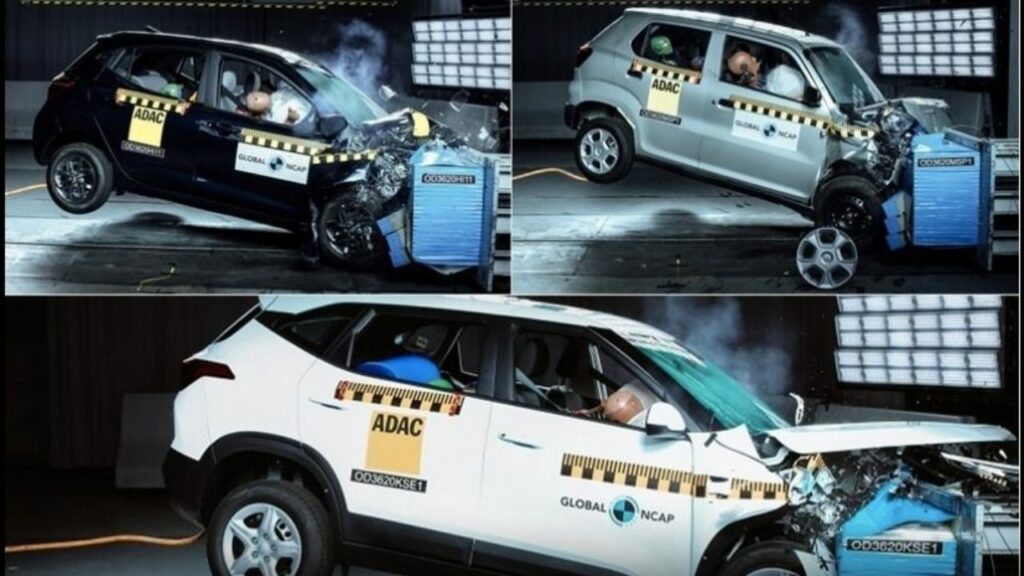Nitin Gadkari, the Union Minister of Road Transport and Highways, is set to introduce the much-anticipated Bharat New Car Assessment Programme (Bharat NCAP) on August 22, 2023.

This launch signifies a significant stride in the government’s commitment to enhance road safety by elevating the safety benchmarks for motor vehicles weighing up to 3.5 tonnes.
Bharat NCAP To Be Launched on August 22, 2023
The initiative’s objective is to furnish potential car buyers with a means to evaluate vehicles based on their crash safety attributes. Under the Bharat NCAP, automobile manufacturers have the option to submit their cars for assessment following the guidelines of the Automotive Industry Standard (AIS) 197.
Depending on their performance in these evaluations, cars will be assigned star ratings for the safety of both adult and child occupants. Prospective car purchasers can leverage these ratings to assess the safety standards of different vehicles, aiding their decision-making process.
#Breaking Bharat NCAP crash tests to be launched on 22nd August by @nitin_gadkari
— Auto News India (ANI) (@TheANI_Official) August 20, 2023
Under Bharat NCAP, manufacturers can voluntarily offer their cars for testing as per AIS197.
Based on the test performance, cars will be awarded star ratings for adult occupants and child occupants pic.twitter.com/oaBMpFRjPA
The anticipation is that the demand for safer cars will surge, compelling car manufacturers to align with consumer demands. Through elevated safety standards, Indian automobiles will also be better poised to compete on a global scale, thus amplifying the export potential of Indian car makers. Ultimately, the program aspires to cultivate a safety-conscious car market within India, as outlined by the Ministry.
Bharat NCAP: All You Need To Know
Under this rule, vehicles must achieve a high rating by including safety features such as 6 airbags, electronic stability control (ESC), and 3-point seatbelts. There also is the possibility that the government will make Advanced Driver Assistance Systems (ADAS) mandatory, which include features such as Advanced Emergency Braking System (AEBS), lane departure warning, forward collision warning, and driver drowsiness detection.
As of now, almost all vehicles that are manufactured and sold in India are assessed by Global NCAP.
As per Gadkari, Bharat NCAP will be a consumer-centric platform, wherein customers will be able to go for safer cars based on their star ratings and will also promote healthy competition among Indian manufacturers.
Indian manufacturers, as per Gadkari, will be able to get their vehicles tested at India’s own in-house testing facilities.
The Bharat NCAP Programme was first introduced in 2016. The Bharat NCAP will include passive safety tests, testing of internal combustion-engined vehicles, test and rating CNG and electric vehicles based on their crash performance.
The one big difference that sets Bharat NCAP apart from other NCAP formats is that BNCAP will get a single unified rating for adult and child protection, whereas the others go for separate star ratings for adult and child protection.
The BNCAP will include frontal, side-impact testing for adult and child restraint systems.











